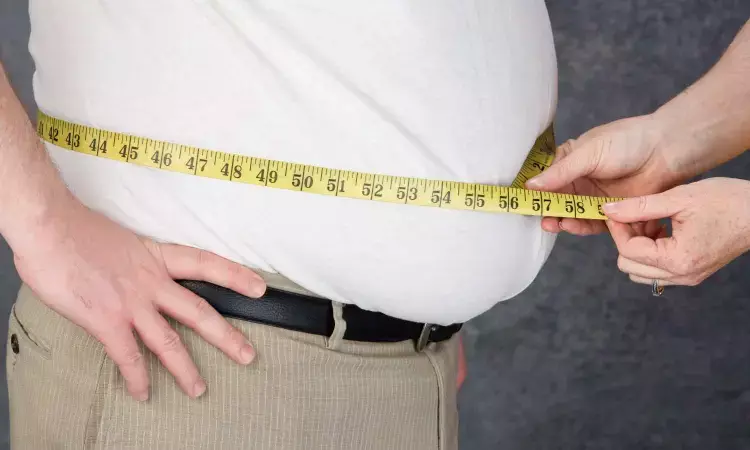- Home
- Medical news & Guidelines
- Anesthesiology
- Cardiology and CTVS
- Critical Care
- Dentistry
- Dermatology
- Diabetes and Endocrinology
- ENT
- Gastroenterology
- Medicine
- Nephrology
- Neurology
- Obstretics-Gynaecology
- Oncology
- Ophthalmology
- Orthopaedics
- Pediatrics-Neonatology
- Psychiatry
- Pulmonology
- Radiology
- Surgery
- Urology
- Laboratory Medicine
- Diet
- Nursing
- Paramedical
- Physiotherapy
- Health news
- Fact Check
- Bone Health Fact Check
- Brain Health Fact Check
- Cancer Related Fact Check
- Child Care Fact Check
- Dental and oral health fact check
- Diabetes and metabolic health fact check
- Diet and Nutrition Fact Check
- Eye and ENT Care Fact Check
- Fitness fact check
- Gut health fact check
- Heart health fact check
- Kidney health fact check
- Medical education fact check
- Men's health fact check
- Respiratory fact check
- Skin and hair care fact check
- Vaccine and Immunization fact check
- Women's health fact check
- AYUSH
- State News
- Andaman and Nicobar Islands
- Andhra Pradesh
- Arunachal Pradesh
- Assam
- Bihar
- Chandigarh
- Chattisgarh
- Dadra and Nagar Haveli
- Daman and Diu
- Delhi
- Goa
- Gujarat
- Haryana
- Himachal Pradesh
- Jammu & Kashmir
- Jharkhand
- Karnataka
- Kerala
- Ladakh
- Lakshadweep
- Madhya Pradesh
- Maharashtra
- Manipur
- Meghalaya
- Mizoram
- Nagaland
- Odisha
- Puducherry
- Punjab
- Rajasthan
- Sikkim
- Tamil Nadu
- Telangana
- Tripura
- Uttar Pradesh
- Uttrakhand
- West Bengal
- Medical Education
- Industry
Bariatric surgery may reverse diabetes complications in obese patients

USA: Bariatric surgery may reverse complications related to diabetes in individuals with obesity, a research team led by the University of Michigan Health Department of Neurology has found. The findings were published in the journal Diabetologia on 14 March 2023.
The researchers followed more than 120 patients who underwent bariatric surgery for obesity two years after the procedure. They found that all metabolic risk factors for developing diabetes, such as high glucose and lipid levels, improved outside of blood pressure and total cholesterol.
Investigators also found that patients two years removed from bariatric surgery showed improvements in peripheral neuropathy, a condition marked by damage to the nerves that go from the spinal cord all the way to the hands and feet.
“Our findings suggest that bariatric surgery likely enables the regeneration of the peripheral nerves and, therefore, may be an effective treatment for millions of individuals with obesity who are at risk of developing diabetes and peripheral neuropathy,” said senior author Brian C. Callaghan, M.D., M.S., a neurologist at the University of Michigan Health and the Eva L. Feldman, M.D., Ph.D., Professor of Neurology at U-M Medical School.
Obesity is the second leading risk factor for peripheral neuropathy after diabetes, which affects more than 30 million Americans.
Researchers assessed two primary measures for peripheral neuropathy in patients with obesity by taking skin biopsies that show the nerve fibre density in the thigh and the leg. Two years after bariatric surgery, nerve fibre density improved in the thigh and remained stable in the leg.
Compared to previous studies of medical weight loss, when providers guide a patient’s weight loss goals, bariatric surgery leads to better metabolic improvements and even greater improvements in peripheral neuropathy.
“Given the natural history of peripheral neuropathy decline in patients with obesity, even stability in nerve fibre density may be considered a successful result,” said first author Evan Reynolds, Ph.D., lead statistician for the NeuroNetwork for Emerging Therapies at Michigan Medicine. “Therefore, our findings of stability of nerve fibre density in the leg and improvement in nerve fibre density at the thigh indicate that bariatric surgery may be a successful therapy to improve or reverse peripheral neuropathy for patients with long-term metabolic impairment.”
Treatment for peripheral neuropathy currently focuses on pain, including oral medications such as gabapentin and sodium channel blockers, topical analgesics and non-medical treatments like exercise and cognitive behavioural therapy.
Reference:
Reynolds, E.L., Watanabe, M., Banerjee, M. et al. The effect of surgical weight loss on diabetes complications in individuals with class II/III obesity. Diabetologia (2023). https://doi.org/10.1007/s00125-023-05899-3.
Dr Kamal Kant Kohli-MBBS, DTCD- a chest specialist with more than 30 years of practice and a flair for writing clinical articles, Dr Kamal Kant Kohli joined Medical Dialogues as a Chief Editor of Medical News. Besides writing articles, as an editor, he proofreads and verifies all the medical content published on Medical Dialogues including those coming from journals, studies,medical conferences,guidelines etc. Email: drkohli@medicaldialogues.in. Contact no. 011-43720751


